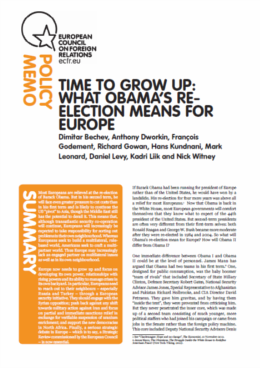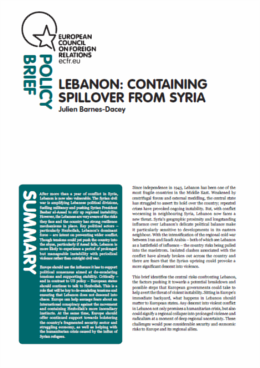Seven takeaways from the Gaza ceasefire
Did Israel's “Operation Pillar of Defense” change the politics of the Middle East? Who are the winners and losers of the Gaza conflict – and what's next after the Israel-Hamas ceasefire?
Did Israel's “Operation Pillar of Defense” change the politics of the Middle East? Who are the winners and losers of the Gaza conflict – and what's next after the Israel-Hamas ceasefire?
What was the assessment that prompted Israel's operation in Gaza and what might that tell us about its intended outcome and trajectory? Of course the timing can be explained with the approaching elections in Israel. But that is only part of the story.

Europe needs to take more responsibility in its neighbourhood
The gathering of world leaders at the United Nations this week will be punctuated by angry statements on the Syrian…

How Europe can help Lebanon to avoid a descent into chaos
With Russia due to play a central role in multilateral institutions over the next two years, its obstructionism over Syria does not bode well. However Europeans may find – to their benefit – that it is actually China that calls the shots on the international stage.
As civil war engulfs Syria talk of politics and diplomacy has fallen silent. But the West should be redoubling its political and diplomatic efforts, even as it offers indirect support for the arming of the rebels in Syria.
The eyes of the world are on Syria's bloody villages. But now the revolution is finally coming to the once quiet, now tense streets of inner Damascus.
Julien Barnes-Dacey has just returned from a visit to Syria, and returned deeply pessimistic about the situation on the ground, with hopes for a political solution appearing all but dead.